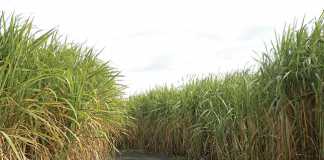Agri SA said it welcomed Nkwinti’s “pragmatic” approach to landownership by failing to endorse his department’s earlier proposal to nationalise farms. But its president, Johannes Möller, expressed concern that “ideological interference in the land market that could easily harm investor confidence and have negative long-term implications for the sector to produce food and create jobs”.
He said there was a perception of a surplus of land in the hands of commercial farmers that could be used for redistribution and black empowerment, and pledged to discuss the underlying economic rationale behind farm sizes.
“Economy of scale is the only sustainable way for farmers to stay competitive and profitable unless support levels for agriculture change,” he said. “Furthermore, the value of land as security is a cornerstone of a market economy and business confidence. Agri SA puts a premium on respect for private property rights as a departure point for economic growth.”
Nkwinti told the National Assembly the new system envisaged three categories of landholding: private land under freehold tenure with limitations imposed; state land under leasehold and foreign ownership linked to partnerships for productive land use with SA citizens. The type of landholding would be informed by categories of land use, including residential, subsistence farming, smallholding, and commercial farming.
In an apparent attempt to diffuse tensions between his officials and the ANC over contradictory statements on nationalising farmland, he said local control of land was key to maintaining national sovereignty. “That’s why, even without it being enshrined in the country’s supreme law, the constitution, land is a national asset,” he said.
“That’s where the debate about agrarian change, land reform, and rural development should, appropriately, begin.” He pledged a “fundamental review” of current property ownership models, but promised rigorous engagement with all South Africans, so that we emerge with a tenure system to satisfy the aspirations of all, irrespective of race, gender, and class.
He admitted his department had focused on the pace of land delivery at the expense of productivity on farms, resulting in a decline in food production, job loses and worsening rural poverty, with limited benefits for new owners.
In reaction to Nkwinti’s speech, Agri SA said his comments would contribute to uncertainty caused by his director-general Tozi Gwanya tabling strategic plan in parliament earlier this month that proposed turning all productive farmland into a “national asset”. The move was slammed by farmers unions and opposition parties. Officials have since issued contradictory statements to try to clarify government’s position.
Nkwinti’s deputy, Joe Paahla, told journalists after a meeting of parliament’s Standing Committee for Public Accounts (Scopa) that farmers had nothing to fear. “I don’t know what the farmers are worried about. There is no threat to take over their farms. There’s no change of law. There’s no change of the constitution or of policy,” he reportedly said.
“If you’re honest, owning land, using it productively, contributing to the food security of South Africa … Really it would be a stupid government which would want to interfere with that.”
Gwanya hinted that his radical proposals were aimed at preventing land-reform farms from compromising food security. “We can’t keep on giving land to people without conditions, when very productive assets are acquired – and then the land is out of use,” he told Business Report.
This suggests he favours two types of rural property rights: one for mostly white commercial farmers and a watered down version for black land-reform beneficiaries.
The ANC head of the rural development and land reform committee later reportedly said Gwanya had spoken “out of turn” by alluding to nationalising farms before raising the issue with party structures.












